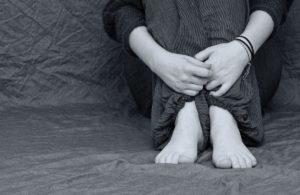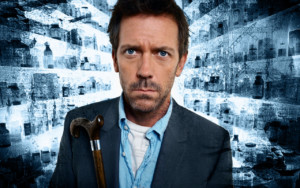
How Developmental Trauma Causes Psychosomatic Symptoms : World Health Day Series
This is the second sharing in our World Health Day series. The last one was on Lack of Routine and its impact on physical health.

This is the second sharing in our World Health Day series. The last one was on Lack of Routine and its impact on physical health.

Today is World Health Day! We don’t need ‘days’ to look after ourselves. However, they are good reminders to look into anything we might be

Rusty is an intense character with a depressing past. He is shown to be a misanthrope, highly self-aware, truthful, responsible, messed up, cruel, obsessive, perceptive, intelligent – all rolled in one. But why are his defenses designed to keep him from experiencing happiness?

Paul Spector is a grief counsellor by day and a serial killer by night. Why does Paul kill young women, what is going on in his psyche during the murders and how do his defenses help him survive and cope?

Dr. House seems to be this bitter, grumpy, cynical middle- aged man full of pride and lacking empathy. However, we can surmise that this image is but a defense. In what ways does Dr. House manage to maintain an emotional distance when relating to others and why does he need to do it?

The very perceptive CIA Agent, Carrie, often digs out solutions that others may miss. She seems driven by her principles to catch the bad guys, and to uphold justice. In dealing with people who embody terrorism, she is objective and often ruthless. However, there are times when her objectivity can be questioned.

Spiritual practices and beliefs help us in many ways. They give us a sense of peace and solace, when times are tough. They also help

Ruthless, narcissist, vile – she’s called many things. You either love Cersei Lannister or you hate her. Being one of the most complex characters in the fantasy world today she also has several defenses at the core of her being – that almost make up the essence of who she is.

This post is about Master Shifu, the Kung Fu Master from the Kung Fu Panda movie series. Master Shifu has many dualities:he feels both peace and rage, he’s disciplined yet soft. What defenses does this Zen Master need to cope?

Claire Underwood is a fictional character from the American political drama, House of Cards. Claire is known to be cold, power-hungry and even ideal to the public eye. But what defenses underlie her strong exterior? Read on to find out more.

We specialize in combining psychotherapy with deep wellness practices like mindfulness and meditation and creating a customized mental health plan for individuals and organisations.
We specialize in combining psychotherapy with deep wellness practices like mindfulness and meditation and creating a customized mental health plan for individuals and organisations.

A young woman from another country moved with her family to live for one year in a town near the monastery. When, in the course of the year she discovered the monastery, she would periodically visit to have discussions with the Abbess. The Abbess introduced her to meditation, which became very meaningful for the young woman.
When the family’s year-long stay was drawing to an end, the young woman asked the Abbess, “In my country there is no Buddhism and no one has even heard about meditation. How can I continue to learn and deepen the practice you have started me on?”
The Abbess said, “When you return home ask far and wide for who, among the wise people, is recognized as having the greatest ability to listen. Ask that person to instruct you in the art of listening. What you learn about listening from such a person will teach you how to further your meditation practice.
― Gil Fronsdal, A Monastery Within: Tales from the Buddhist Path